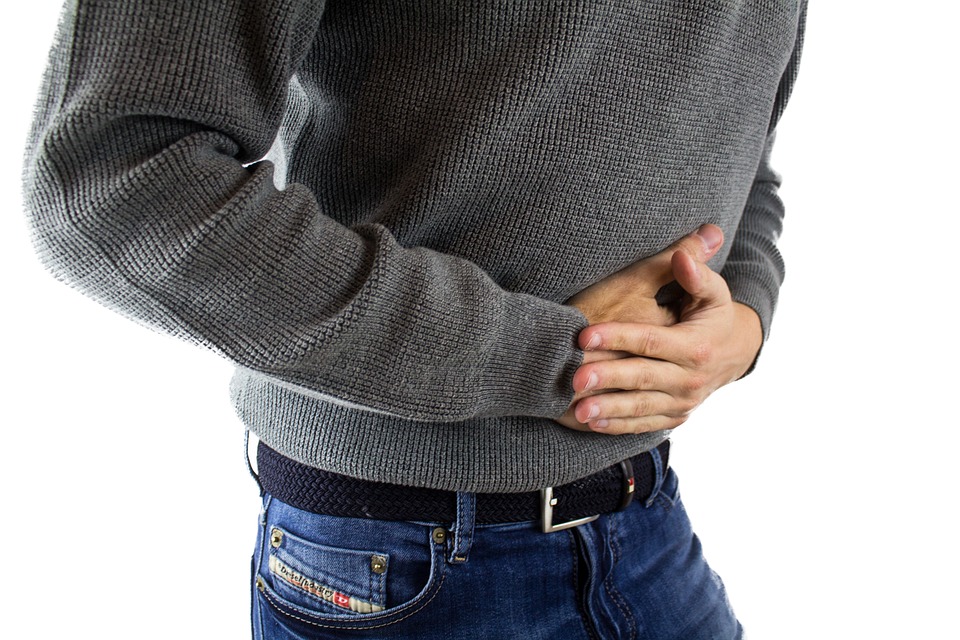People often get nervous or anxious before an important event, like an exam or interview, which can lead to them having Laurel & Hardy poops – otherwise known as nervous poops. If you find that you are pooping more when you are stressed or anxious, it is nothing to worry about! You are not alone!
You may find yourself having to use the restroom more often than usual before a big presentation, interview, or other important event. On days when you’re feeling anxious, you may notice that you have to go to the bathroom more often than usual.
Stress and anxiety are not just mental conditions – they can also have physical effects on your body, including your bowels. Let’s explore the reasons this occurs and what steps you can take to mitigate it.
Does stress cause constipation and why?
Yes, it does, and very significantly.
- First, ongoing low-level stress and anxiety suppress the gastrocolic reflex — an unconscious action by the gastrointestinal tract that precedes a bowel movement;
Cause and effect : This happens for several, biological, evolutionary, and personality-type reasons. According to researchers, personality “accounted for about as much variance in stool output as did dietary fiber.” And from what we already know about fiber‘s profound laxative effective, that‘s saying a lot! As you can see, following the “don‘t worry, be happy” advice stands true for constipation as well . - Second, people in moderate-stress situations, such as weddings, entrance exams, lawsuits, job problems, and endless others tend to suppress the urge to move their bowels;
Cause and effect : If you let the stress to interrupt essential bathroom breaks, you turn yourself into what is known as a “tight ass” personality-type! Tight ass once, tight ass twice, and constipation becomes life‘s permanent companion! It happens because suppressing bowel movements, even once, enlarges and hardens up stools. In turn, larger stools necessitate straining. Straining leads to enlarged internal hemorrhoids and anorectal nerve damage. This causes incomplete emptying, that makes stools even larger, and —â?¦ Bingo! You are reading this transcriptâ?¦ - Third, a truly high stress situation often causes diarrhea that, in turn, disrupts bowel movements and results in constipation;
Cause and effect : We explain the reasons behind this phenomenon here . But that is usually not the end of it, because diarrhea causes the disruption of bowel movements, contributes to nerve damage, enlarged hemorrhoids, and may lead to inflammatory bowel disease, that, in turn, sets up an alternating pattern of diarrhea and constipation for the rest of one‘s shortened life. - Fourth, many people under stress seek relief by taking medication for depression, anxiety, bi-polar disorder, or simply self-medicate themselves with illicit drugs or alcohol;
Cause and effect : All of these lifestyle enhancers not only blunt life‘s stresses, but also the entire GI tract, and that is why constipation is one of the most prominent side effects of mood-enhancing drugs, whether prescription or illicit. Alcohol action is even worse — it dehydrates stools and suppresses intestinal peristalsis all at once.
This also applies to infants, toddlers, children, adults, and especially seniors, who are already affected by many other problems related to constipation.
What You Need To Know
Gut-Brain Axis
Your brain and digestive system are closely related and can influence one another. Your emotions can have a big impact on your digestive system.
Although this may sound unbelievable, there are actually many examples if you think carefully. Do you know the feeling you get when you’re nervous or excited and you get a fluttery feeling in your stomach? If you’re feeling angry or upset, you may not feel like eating. There is a strong connection between your emotions and your digestive system. For example, if you are feeling stressed, it can affect your digestion.
This connection is referred to as the gut microbiota-brain axis, or more simply, the gut-brain axis. When we experience stress or anxiety, the hormones our body releases can have a negative impact on the gut microbiota in our digestive tract. This increase in movement through our digestive tract can make us poop more!
The interesting thing is that there is evidence to show that the connection between our gut and brain goes both ways. This means that the state of our gut health can also have an impact on our brain function and mood.
Pain Messages
Some research suggests that anxiety may change how our brain interprets messages from the visceral nerves, which are nerves located in our stomach and intestines. There is a belief among scientists that the brain may be tricked into thinking that the stomach and intestines are sending pain messages or that movement needs to be quickest. This can result in diarrhea when we feel anxious.
Fight or Flight Response
The “fight or flight” response is a survival mechanism that kicks in when we perceive a threat. It’s an automatic, physiological response that primes our bodies to either fight or take off. The nervous system prepares the body for action by increasing the heart and breathing rate. Resources are directed to areas of the body that will be needed for action, and away from those that won’t be needed.
The result of this is that the stomach and small intestine movements slow down, while the large intestine’s movement speed up. Unfortunately, this typically leads to diarrhea.
The ‘flight or flight response’ is a helpful natural response that keeps us safe when we face a threat. However, when this response is activated for a prolonged period due to stress or anxiety, it can have negative effects on our physical health.
Changes in Sleep
Often, when we are stressed or anxious, we make changes to our lifestyle that can have a knock-on effect on our digestive system. You might find it difficult to sleep restfully the night before an important test or interview due to nerves.
Not getting enough sleep can make you more stressed, and your body’s stress response can make it harder to digest food.
There is some evidence to suggest that there is a connection between the quality of your sleep and the health of your digestive system, with one study finding that poor sleep is linked to an increased likelihood of experiencing multiple gastrointestinal symptoms. This includes more frequent bowel movements, diarrhea, and constipation.
Changes in Diet
If you’re feeling anxious, you may end up eating more or less than you typically would. This can obviously have an impact on your digestive system. You might make different food choices, such as reaching for less healthy foods because they feel comforting or because they’re quick to grab.
You are not the only one that does this and there is nothing to be embarrassed about. Dietary changes can cause digestive issues and changes in bowel movements.
When to Seek Help
If you are experiencing too many health problems, you should seek professional help so that you can recover. When should you seek help?
Getting Help for Anxiety and Stress
If your stress or anxiety is severely impacting your day-to-day life, it may be time to seek professional help.
One way to get help for your depression is to visit your doctor. They may be able to recommend different services that can assist you. Coping medications and therapies designed to help manage emotions may be options worth exploring.
When to Seek Help for Digestive Problems
If you experience any of the following, it’s best to get checked by your doctor to make sure your digestive issues aren’t anything more serious:
- Ongoing diarrhea or constipation that lasts for days or weeks at a time
- Severe stomach pain
- Poop that contains blood or pus
- Poop that is black or looks ‘tarry’
- Unexplained weight loss
are also being reported More symptoms of the illness are being reported, such as vomiting, feeling dizzy, and severe fatigue.
If you have a feeling that something could be wrong, you should always consult with a professional. You know your body best!
Recommendations
While stress may go away eventually, constipation is a different story. If you get hit by it, it will likely stay with you forever and get worse each year. We explain the reasons why on our page The Bulls’ S..t In The China Shop.
Here is what you can do to prevent this from happening to you:
- Since moving the bowels is mainly a subconscious process — consciousness can only interrupt the bowel movement already in progress, — it may mean that you are suppressing the ’emerging’ urge to move the bowels while under stress. Therefore, be aware of this distinct possibility, and don’t do it.
- In general, getting constipated while under stress suggests that you are already affected by latent constipation. In this case, you should follow the steps outlined here: No Downsize, Just Upside-down to eliminate latent constipation.
- If you don’t have time or inclination to study this site, or under too much duress to tackle ‘crapology,’ start from using all or some of the components of the Colorectal Recovery Kit to eliminate immediate constipation, as well as to begin the process of healing and reconditioning the bowel. The actual choice of components depends on the severity and duration of your constipation, and related factors described on the accompanying pages.
We neither like fixing stress with pharmaceuticals nor nutraceuticals because they either numb your mind or mask the side-effects of stress while the stress itself and your responses to it remain unchanged. The vast majority of these supposed remedies suppress nerve function and involuntary muscle control, both of which are essential for regular bowel movements.
The effects of stress vary from person to person. Some people feel no effects from stressful events, while others respond very strongly. This means that health-related problems are not only caused by stress, but also by the ways your mind processes it.
An example of this would be if you were driving and saw a police car. If you are driving safely, you are happy to see the police officers who are watching out for your safety. If you are guilty of any of the infractions above, you are likely experiencing a knot in your gut, which is a common side effect of stressful events. The same trigger can cause different reactions depending on the circumstances.
The best way to avoid getting in trouble is to follow the rules. Since there are some things that you can’t control – like a boss who is a jerk, or a delayed plane, or a crying child aboard, or a stolen laptop – it’s best to train your mind to deal with stress without harming yourself. The skill of meditation will not only protect your heart and mind from accelerated wear-and-tear, but also your bowels.
How do you do this kind of training? The CIA and KGB use mind conditioning techniques on their spies bySubjecting them to repeated high stress events and desynthesizing their perceptions and reactions. Although their method is rough, it is successful, especially with adolescent newbies.
If you aren’t interested in the James Bond lifestyle, you can enroll in a yoga class to learn mind control techniques like breathing, meditation, relaxation, and thought-vectoring.
What You Can Do About It
If you’re wondering what you can do about nervous poops, the first step is to understand what causes them. Do not be anxious, there are methods you can employ to ameliorate the situation by bettering your gut health and curtailing stress levels. The tips below are a great place to start.
Alter Your Diet
You can calm your stomach by changing your diet, especially before an event that may cause you stress or anxiety.
Improve Your Sleep
Since sleep can have such a big impact on your stress levels, you can reduce stress by improving your sleep. Getting enough sleep is important, especially when you know you have a stressful event coming up.
Mindfulness
Mindfulness can help you to feel calmer by reducing stress and anxiety, and by helping you to regulate your emotions. Mindfulness practices are about being present and focusing on the current moment without worrying about the future or judging what is happening.
If you have any problems with your colleagues or manager, or if you have any issues with your friends or partner, you may be able to resolve them through open communication.
No More Anxious Poops!
You can reduce anxious poops by reducing stress in your life and improving your digestive health. Here are some tips you can try next time you’re struggling. See if they make a difference.



